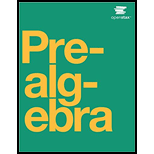A charity holds a raffle in which each ticket is sold for $30. A total of 12,000 tickets are sold. They raffle one grand prize which is a Mercedes Benz E350 valued at $45,000 along with 4-second prizes of Kawasaki motorcycles valued at $9,000 each. What are the expected winnings for a single ticket buyer? Express to at least three decimal place accuracy in dollar form (as opposed to cents).
Continuous Probability Distributions
Probability distributions are of two types, which are continuous probability distributions and discrete probability distributions. A continuous probability distribution contains an infinite number of values. For example, if time is infinite: you could count from 0 to a trillion seconds, billion seconds, so on indefinitely. A discrete probability distribution consists of only a countable set of possible values.
Normal Distribution
Suppose we had to design a bathroom weighing scale, how would we decide what should be the range of the weighing machine? Would we take the highest recorded human weight in history and use that as the upper limit for our weighing scale? This may not be a great idea as the sensitivity of the scale would get reduced if the range is too large. At the same time, if we keep the upper limit too low, it may not be usable for a large percentage of the population!
A charity holds a raffle in which each ticket is sold for $30. A total of 12,000 tickets are sold. They raffle one grand prize which is a Mercedes Benz E350 valued at $45,000 along with 4-second prizes of Kawasaki motorcycles valued at $9,000 each. What are the expected winnings for a single ticket buyer? Express to at least three decimal place accuracy in dollar form (as opposed to cents).
Trending now
This is a popular solution!
Step by step
Solved in 2 steps with 2 images









